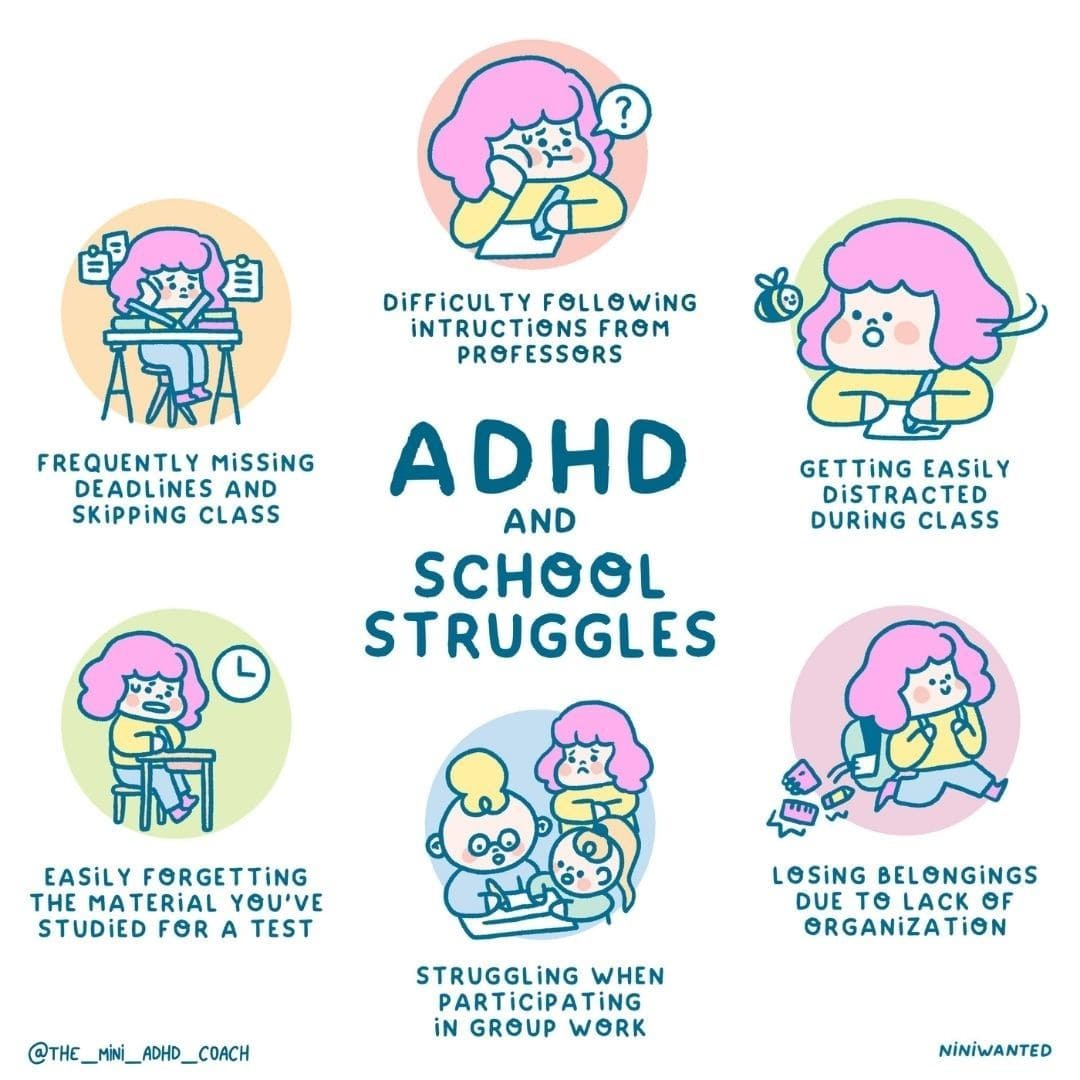The Role Of Group Support In ADHD Management: Benefits And Strategies

Table of Contents
Understanding the Benefits of Group Support for ADHD
Successfully managing ADHD often requires a multifaceted approach. While professional help is essential, the addition of a supportive community can significantly enhance treatment effectiveness. Group support offers several key benefits:
Shared Experiences and Reduced Isolation
Feeling understood and less alone is crucial for managing the daily struggles of ADHD. The sense of isolation and shame often associated with this neurodevelopmental condition can be profoundly debilitating. ADHD support groups offer a safe space to share experiences and challenges without judgment. This shared understanding is incredibly powerful:
- Connect with others who understand the daily struggles: From challenges with focus and organization to emotional regulation difficulties, you'll find that others in the group have faced similar hurdles.
- Learn coping mechanisms directly from peers: Hearing firsthand how others manage their ADHD symptoms provides valuable insights and practical strategies.
- Realize you’re not alone in your challenges: This realization alone can be incredibly liberating and reduce feelings of inadequacy or self-blame. Knowing you're part of a community facing similar obstacles fosters resilience.
Enhanced Coping Strategies and Skills Development
Group support isn't just about emotional support; it's also a powerful platform for skill development. Members often share effective strategies for managing various ADHD symptoms, fostering a collaborative learning environment.
- Learn problem-solving techniques and organizational skills: Through discussions and shared experiences, you can acquire new techniques for time management, prioritization, and task completion.
- Develop emotional regulation skills through peer support: Learning from others how to manage frustration, impulsivity, and emotional overwhelm is a vital aspect of ADHD management. The group provides a safe space to practice these skills.
- Examples of shared strategies:
- Time management techniques (Pomodoro Technique, time blocking).
- Organizational strategies (color-coded systems, digital organizers).
- Effective communication skills (assertiveness training, active listening).
Increased Motivation and Accountability
The shared goals and encouragement within an ADHD support group foster a sense of community and motivation. This shared journey encourages consistent effort and provides support during setbacks.
- Set shared goals and track progress together: The collaborative nature of the group provides motivation and a sense of accountability.
- Receive encouragement and support from peers: Knowing others are working towards similar goals creates a powerful support network.
- Maintain accountability for implementing strategies: Sharing your progress and challenges with others helps you stay on track and overcome obstacles. The group becomes a source of encouragement and constructive feedback.
Finding and Participating in Effective ADHD Support Groups
Finding the right ADHD support group is crucial for maximizing its benefits. Several options exist, each with its own advantages:
Types of ADHD Support Groups
The best type of group depends on individual preferences and needs. Consider the following options:
-
Online forums and communities: Offer increased accessibility and anonymity, allowing participation regardless of location. Many online communities are thriving with active discussions and resources.
-
In-person support groups: Provide the benefit of face-to-face interaction and a stronger sense of community.
-
Support groups facilitated by professionals: Offer structured guidance and a more therapeutic environment, potentially incorporating evidence-based strategies for ADHD management.
-
Finding the right fit:
- Consider your preferred communication style (online vs. in-person).
- Research groups specific to your age or ADHD subtype (adult ADHD, children's ADHD).
- Look for groups with experienced facilitators (therapists, coaches, or individuals with extensive ADHD experience).
Tips for Active Participation
To maximize the benefits of group participation, consider these strategies:
-
Prepare questions and topics to discuss beforehand: This helps ensure you actively engage in the discussions.
-
Actively listen to and engage with other members: Show respect and genuine interest in the experiences of others.
-
Respect the confidentiality of the group: Maintain the privacy of shared information.
-
Be open to sharing your experiences and learning from others: Vulnerability and openness are key to maximizing the benefits of the group.
-
Making the most of your participation:
- Contribute meaningfully to group discussions, sharing your experiences and insights.
- Be mindful of your communication style and ensure you're actively listening.
- Focus on building positive relationships with other members.
Conclusion
This article highlights the significant role of group support for ADHD management. Participation in these groups offers invaluable benefits, including reducing feelings of isolation, enhancing coping strategies, and fostering increased motivation and accountability. By finding the right group and actively participating, individuals with ADHD can build a strong support network that complements professional treatment and significantly improves their quality of life. Take the first step towards better ADHD management by exploring ADHD support groups near you or online today. Find the ADHD support that works best for your needs and begin your journey towards a more fulfilling life.

Featured Posts
-
 Ce Modificari Fiscale Se Pregatesc In 2025 Informatii Esentiale De La Conferinta Pw C
Apr 29, 2025
Ce Modificari Fiscale Se Pregatesc In 2025 Informatii Esentiale De La Conferinta Pw C
Apr 29, 2025 -
 Key Legal Battles Won By Lgbt Pioneers
Apr 29, 2025
Key Legal Battles Won By Lgbt Pioneers
Apr 29, 2025 -
 Bof As Take Are High Stock Market Valuations A Cause For Concern
Apr 29, 2025
Bof As Take Are High Stock Market Valuations A Cause For Concern
Apr 29, 2025 -
 Jeff Goldblum And Ariana Grande Release Joint Single I Dont Know Why
Apr 29, 2025
Jeff Goldblum And Ariana Grande Release Joint Single I Dont Know Why
Apr 29, 2025 -
 Mhairi Black On Misogyny And The Discourse Surrounding Womens Safety
Apr 29, 2025
Mhairi Black On Misogyny And The Discourse Surrounding Womens Safety
Apr 29, 2025
Latest Posts
-
 San Diego Sheriffs Office Faces Lawsuit Following Inmate Death
Apr 30, 2025
San Diego Sheriffs Office Faces Lawsuit Following Inmate Death
Apr 30, 2025 -
 San Diego County Jail Lawsuit Family Alleges Cellmate Murdered Loved One After Torture
Apr 30, 2025
San Diego County Jail Lawsuit Family Alleges Cellmate Murdered Loved One After Torture
Apr 30, 2025 -
 Family Files Wrongful Death Suit Against San Diego County Sheriffs Office
Apr 30, 2025
Family Files Wrongful Death Suit Against San Diego County Sheriffs Office
Apr 30, 2025 -
 Incident Near Yate Recycling Centre Air Ambulance On Scene
Apr 30, 2025
Incident Near Yate Recycling Centre Air Ambulance On Scene
Apr 30, 2025 -
 Family Files Lawsuit Following Inmates Alleged Torture And Murder In San Diego County Jail
Apr 30, 2025
Family Files Lawsuit Following Inmates Alleged Torture And Murder In San Diego County Jail
Apr 30, 2025
